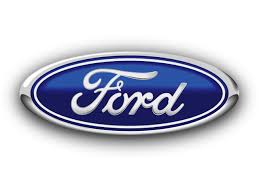Tempo L4-122 2.0L DSL (1984)

Evaporative Emissions System: Technical Service Bulletins
Fuel System - Liquid/Vapor Leak Detection
Article No. 85-1-16
FUEL ODOR - DIAGNOSING FOR LIQUID OR VAPOR FUEL LEAKS
FORD ALL 1980-85
LINCOLN-MERCURY ALL 1980-85
This procedure should be used when diagnosing for liquid or vapor fuel leaks. Included are potential leak sources and inspection/service procedures.
The source of fuel odor is not always obvious. When there is no obvious liquid fuel leakage, fuel vapor leakage is the most likely source of fuel odor.
Vapor leakage can occur in the vapor vent line, the top half of the fuel tank (above fuel level), the fuel filler pipe and fuel filler cap. Also, fuel spilled
during refueling can cause an objectionable odor due to improper drainage or sealing of the fuel filler housing.
The following chart has been developed as a guide for finding the cause of fuel odor. The chart lists many potential vapor/liquid sources. None of the
sources listed are known to be prevalent fuel leakage problems; therefore, it is possible that some service personnel have not encountered them.
Potential
Leak Source
Inspection Procedure
Service Procedure
Fuel Line Connection
Check for cracked rubber hoses.
Replace hose and clamps.
Check all fuel lines and fittings for
Replace fittings and/or defective tubing.
leaks (leaks may only occur with the engine running).
Check for disconnected vapor tubes
Reconnect vapor tube.
(including hidden connection on top of tank).
Fuel Lines
Check for fuel tube corrosion at clips.
Replace section of fuel line in accordance
with shop manual procedures.
Check complete length of tubing for
Replace section of fuel line in accordance
cracks, leaks may only show up with
with shop manual procedures.
engine running.
Fuel Tank
Inspect weld seam for leak.
Replace tank.
Remove tank and inspect for:
a.
Corrosion perforation or cracks on Replace tank. tank top surface.
b.
Sender unit seal leak. Replace seal and tighten lock ring securely.
c.
Vapor vent valve unseated/missing. Replace or correctly install vapor vent valve.
Fuel Filler Pipe (-9034-)
Remove filler pipe and seal from the
Replace with new pipe and seal.
Fuel Tank Seal (-9072-)
fuel tank inspect for leak path such as
weld seam, groove on pipe or blemish/ cut on seal.
Fuel Filler Pipe
Inspect the entire length of the filler
Replace the filler pipe and seal, if
NOTE:
Filler pipe leaks pipe, including under seals and in necessary. should be suspected if luggage compartment. If necessary, the
customer complains remove the filler pipe and inspect for
that odor is most severe
holes in the weld seam, corrosion
after refueling tank.
related perforations, and voids in the
solder at the cap retainer.
Fuel Filler Cap (-9030-)
Check for damage to:
Replace cap and/or pipe.
a.
Split O-ring seal
b.
Filler pipe sealing surface.
Check relief valves in cap for proper
Replace cap.
seating. Use probe to move valve if stuck open. Attempt to blow through vent hole. Properly seated valve should not pass air at less than
1.5 psi.
Fuel Filler Pipe Housing
Check drainage hose for proper routing
Route drainage hose through grommet
(-27936-)
and drainage. Pour water into housing
in wheelhouse to position end of hose
NOTE:
Housing should to check for proper drainage. outside of the luggage compartment. be suspected if customer complains that
Check housing for proper attachment Service loose or missing attachments.
odor is most severe
and sealing to filler pipe and body.
